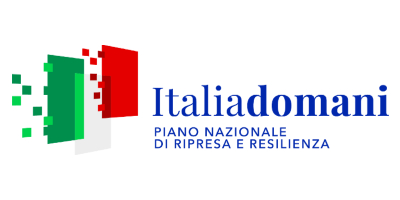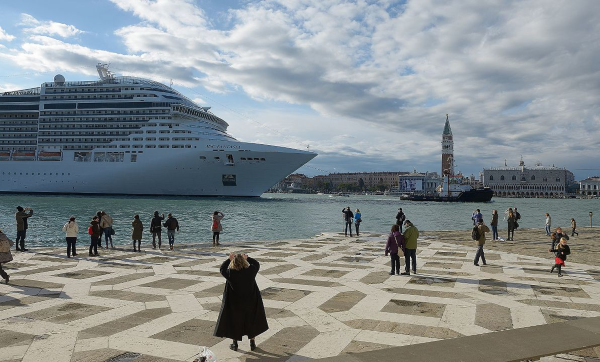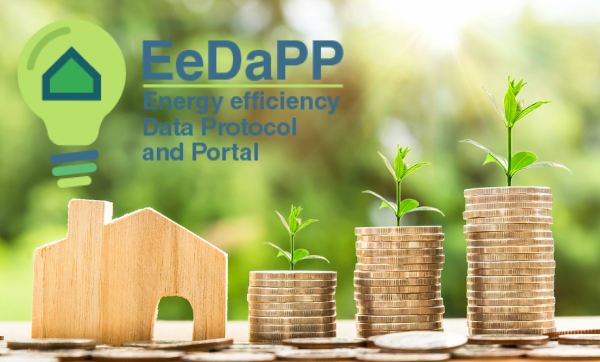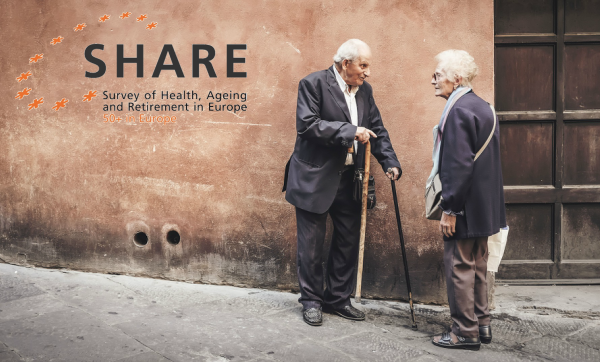Research projects

The Department of Economics manages numerous research projects, both national and international, characterized by a multidisciplinary and innovative approach to those small, medium and large scale applications.
The projects are shown according to the Research Institute for Global Challenges promoted by the University, aimed at encouraging partnerships and enhancing the most promising researchers.
The National Recovery and Reslience Plan (NRRP) is the document that explains in detail how will be managed in Italy the funds deriving from the financial project of European recovery NextGenerationEU, which with about 800 million euros has the objective of building Europe post Covid-19. To Italy will be distributed approximately 191 billion of European funds of the NGEU and 30,6 billion of national funds, for a total of 222,1 billion euros.
Funded projects

Enlarged Partnership Theme 9
GRINS - Growing Resilient, INclusive and Sustainable
Funding Programme: PNRR M4C2 Inv.1.3 PE- Enlarged Partnerships
Hub: GRINS Foundation - GROWING RESILIENT, INCLUSIVE AND SUSTAINABLE
Length: 01/12/2022 - 30/11/2025 (36 months)
Budget: € 115.900.000 (Ca' Foscari € 4.135.000)
Ca’ Foscari Spoke: 4 - Sustainable finance
Principal Investigator at Ca’ Foscari: Monica Billio, Department of Economics
Abstract
The economic, financial and geo-political crises of the last two decades and the still ongoing pandemic have left a tangible imprint on socio-economic conditions in Italy, increased inequalities and put a shadow on the growth prospects of entire communities that are increasingly put under stress by socio-economic, political and health shocks. The negative impacts on communities and territories are compounded by ongoing long-term processes related to slow productivity growth, climate change and structural dynamics. Furthermore, the progressive intensification of economic and financial integration, the growing scale of migration and international conflicts transmission increasingly make politico-economic shocks more global, harder to foresee and more difficult to handle both at the national and at the local level. In this context, the National Recovery and Resilience Plan (NRRP) offers an unprecedented opportunity reduce important gaps and to make the system more resilient, inclusive, and sustainable in the face of shocks and long-term transformations. While the process of implementation of these plans is vital, it is fraught with challenges. The massive scale of investments involved in the process and the compressed time horizon available for its implementation is a further source of stress for the system and a potential risk for social cohesion and the sustainability of private and public debts. The depth of the required reforms associated to the green, digital and sustainable mobility transitions and the associated societal transformations require a far from trivial process of adaptation.
The actors of the system, firms, households and public administrations, face complex and changing environments and need to make choices under uncertainty, often under limited information and often facing limitations in their ability to process it and use if proficiently. For instance, households need to make financial, labour, and consumption choices that require an increasingly deep understanding of changing market conditions and public regulations and that often require the ability to use digital technologies effectively. Similarly, resilient firms need to foresee future scenario and adapt their organization modes, adjust production strategies and make risky investments, among many others. An effective and sustainable provision of public services by the public sector rests on well working and transparent administrations, a careful design of policies, a clear understanding of citizens’ needs and the ability to plan financial sustainability and debts over the long-run. The public and private research system can play a fundamental role in supporting actors in their choices by responding to these needs, by providing useful knowledge and support for the implementation of key enabling technologies, like financial sustainability instruments, strategies for innovative ecosystems and circular economies, and low carbon policies and support territorial and social cohesion by offering evidence-based advices to policy makers. All this requires high quality, timely, easy to access and usable data from different sources as well as effective and user-friendly tools for data analysis and supporting knowledge transfers and the design of evidence-based public policies.
GRINS EP aims at developing an integrated set of geo-referenced heterogeneous databases for the study of the evolution of the economic and social conditions of the Italian local areas and of the economic system as a whole.
In particular, the research focus will be around the following themes:
- environment, that is, the evolution of climatic conditions, the mapping of significant natural risks, and pollution data;
- economic-social and health, that is, the analysis of heterogeneous information on sentiment, mobility, consumption, health, as well as the performance of economic activities;
- finance, for the analysis of the relationship between environmental dynamics, evolution of risk profiles.
Middle term and long-term sustainability of the debt of different stakeholders (State, households and firms) will be tackled.
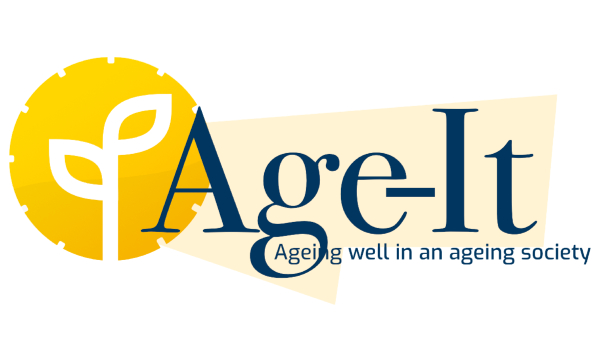
AGE-IT - A novel public-private alliance to generate socioeconomic, biomedical and technological solutions for an inclusive Italian ageing society
Funding Programme: PNRR M4C2 Inv.1.3 PE- Enlarged Partnerships
Hub: Italian Ageing - AGE-IT Scarl
Lenght: 01/01/2023 - 31/12/2025 (36 months)
Budget: € 114.737.062,66 (Ca' Foscari: € 5.582.585,63);
Ca' Foscari Spoke: 6 - The Silver Economy. Work, participation, and welfare at older ages
Principal investigator: Agar Brugiavini, Department of Economics
Abstract
Population ageing is a major and unprecedented global phenomenon. It involves an increasing chance for individuals to reach old age (even if not necessarily in good health), and a rising share of older people over the total population. Global ageing is driven by the reductions in fertility and improvements in survival, typically occurring through the demographic transition. In turn this has triggered several dynamic processes involving society, markets, welfare states, cultural and political change, within an interconnected system. Ageing is a multi-faceted complex process, presenting challenges and risks, but also offering groundbreaking opportunities to promote inclusive well-being for society as a whole.
The Age-It programme follows the view of the World Health Organization, promoting “active and healthy ageing” (WHO 2015). Accordingly, ageing is not considered as a time of decline in mental and physical functioning, leading to a condition of health and socioeconomic dependency that makes older people a “social problem”, but rather as a period of life in which individuals can use their maturity to represent a resource for society, and an opportunity for building economically prosperous, socially just, and sustainable societies. Italy is ranking high in global ageing: 23.3% of the population is 65 or older, life expectancy in 2015-20 is among the highest in the world, both at birth (83.3 years) and at the age of 65 (21.1 years), with current very low levels of fertility (1.24 children per women in 2020).
This position as a frontrunner of ageing, together with the country’s extraordinary regional disparities (North vs. South, Coastal vs. Inland, Rural vs. Urban), make Italy the ideal “empirical laboratory” to address how different combinations of biological, clinical, cultural and socioeconomic factors, in addition to a variety of institutional responses by health and social care systems to the ageing process, are leading to different individual and societal outcomes. However, structural bottlenecks have hampered the advancement of research: the prevalence of discipline specific analytical frameworks, the limited transdisciplinary collaboration, the scattered availability of data, and the difficulty in translating the various scientific studies into policies. Likewise, scanty opportunities for public-private and for academic and professional collaboration have so far limited the scope for transferring new research findings into practice or for contributing to a coherent national active and healthy ageing strategy.

Engage for ESG activation investments
Researcher: Monica Billio; Granth: LIFE; Lenght:01/11/2022 - 31/10/2025; Budget: 1.472.500 € (Ca' Foscari 128.000€).
Abstract
The EU Green Deal emphasizes the twin transition: by linking the digital transformation to the green transition, Europe can empower traditional sectors and strengthen its position in global market. In this context, by translating ESG funding needs into consumer products and vice versa, we can create a future-proof data framework for green mortgage financing, crucial for a successful European decarbonisation. ENGAGE aims to provide a solution based on a single data disclosure format for mortgage funding and regulatory purposes encompassing the most relevant European ESG regulations (such as the EU Taxonomy, EU GBS and mortgage credit directive. The ENGAGE objectives: Looking at the different templates and disclosure requirements, we identify the key data fields significant to assess the energy efficiency information of green mortgages. Once the critical fields have been identified, we
will harmonise the definitions with the existing reporting templates. Finally, a standardised data template will be developed in line with the current market standards.
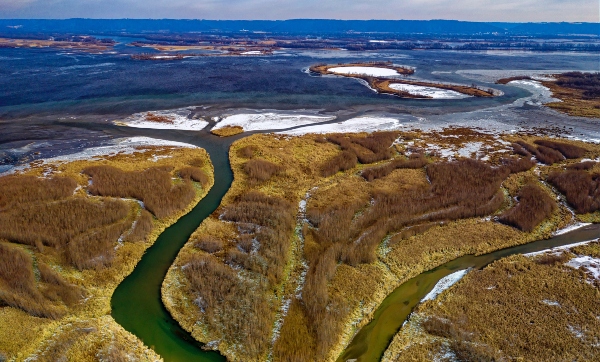
DANUBIUS Implementation Phase Project - DANUBIUS-IP
Researcher: Nicola Camatti; Granth: Horizon Europe; Lenght:01/10/2022 - 30/09/2025; Budget: 1.499.999 € (Ca' Foscari 30.000€).
Abstract
DANUBIUS-IP project brings together 25 experienced partners from 14 countries from across Europe in a consortium with complimentary areas of multi-disciplinary expertise across the freshwater and marine research fields. The project specifically seeks to address recommendations from the recent ESFRI and High-Level Expert Group reports (on DANUBIUS-RI) and make a significant contribution to the expected outcomes and wider impacts of the Horizon Europe Programme. As such the project considers the importance of sustainability of financial commitments, the need to test the funding model and to enhance the visibility of the RI. DANUBIUS-IP will further demonstrate the efficacy of an integrated and interdisciplinary approach embracing a 'river-sea continuum' perspective to fill current gaps in the Research and Innovation landscape to address key societal challenges in these environments impacted by anthropogenic pressures and climate change.

WaterLANDS - Water based solutions for carbon storage, people and wilderness
Researcher: Carlo Giupponi; Granth: H2020; Lenght: 01/10/2021 - 30/09/2026; Budget: € 23.631.576,20 (Ca' Foscari: € 517.205,00)
Abstract
WaterLANDS aims to enable an upscaling of the restoration of wetlands. Socio-economic factors, insufficient stakeholder engagement, lack of government commitment, lack of funding and inadequate exchange of knowledge of restoration methods have all been identified as barriers to successful restoration. Consequently, most restoration has been modest in scale, has occurred mainly where there is a single landowning or responsible organisation, and has often been undertaken principally for reasons of conservation.
WaterLANDS will work to overcome these barriers. It includes both Action and Knowledge Sites, the former being the object of restoration upscaling, and the latter a source of best practice experience and knowledge. To provide for local support and sustainability, it will aim for the co-design of restoration with the on-going engagement of communities and stakeholders. It will investigate best practice in ecological restoration which meets both biodiversity and social objectives and for which restoration trajectories are specific to the physical and cultural context of the Action Sites.
It will propose supportive governance structures appropriate to this process and to local and national circumstances. It will identify business models, economic incentives and international funding sources and tailor or direct these resources for each site. The project will pull this expertise and knowledge together in a cocreation work package. Process-indicators will be developed to enable on-going assessment of restoration success in terms of ecosystem services, socioeconomic embedding and financial sustainability, to ensure wide-scale restoration which catalyses scalability beyond the life of the WaterLANDS project.
TranspArEEnS - mainstreaming Transparent Assessment of Energy efficiency in Environmental social governance ratingS
Researcher: Monica Billio; Grant: H2020; Lenght: 01/06/2021 - 31/12/2023; Budget: € 1.487.957,50 (Ca' Foscari: € 421.876,25); Website: www.transpareens.eu
Abstract
Improving access to long-term finance for Energy Efficiency (EE) projects is key to achieve the EU2030 targets and aligning the COVID-19 recovery to the European Green Deal. However, the lack of standardized disclosure of EE investments limits firms’ access to EE financing. Further, poor understanding of EE information in ESG ratings increases the risk of greenwashing, thus preventing a smooth development of the sustainable finance market.
TranspArEEnS addresses these barriers by mainstreaming a quali-quantitative framework for standardized collection and analysis of firms’ EE and ESG information and the development of a standardized EE-ESG rating. This serves as an EE-ESG filter to inform investment and financial policy decisions with regard to portfolios’ alignment to sustainability. A unique added value of this project is to cover non-listed Small and Medium Enterprises, meeting an important market need.
TranspArEEnS’ EE-ESG rating will be tested in pilot case studies and capacity building sessions with leading representatives of the financial industry and supervisors. This allows to understand barriers and opportunities for its operationalization in:
- credit risk assessment
- development of long-term EE-financing via securitization (covered bonds, European Secured Notes)
- introduction of EE-ESG considerations into monetary policies and prudential regulations.
By enhancing standardized disclosure of EE investing, TranspArEEnS will decrease uncertainty in the EE and ESG market, thus promoting the scaling up of new EE financing and investment opportunities in the EU. Moreover, it will help to mitigate the risk of greenwashing thus improving financial stability. An excellent Consortium, composed of leading academic, business and financial experts, with the support of key stakeholders in EE and sustainable finance, ensures the policy and market relevance of the project’s results.
ALTER ECO PLUS - Underpinning mainstreaming processes of the Carrying Capacity Limit calculation tool to improve tourism policies and strategies in MED territories
Researcher: Nicola Camatti; Grant: Interreg MED; Lenght: 01/06/2021 - 30/06/2022; Budget: € 400.000,00 (Ca' Foscari: € 106.000,00); Website: https://alter-eco.interreg-med.eu
Abstract
The pressures of tourism in MED are a major challenge for its sustainable future due to its seasonality and impact on limited geographic areas, which lead to an increase in the need for water resources and an increase in waste generation that exceeds carrying capacity limits (CCL) of tourist destinations. While tourism can contribute to the improvement of local social and economic conditions, it can also increase environmental pressures and jeopardize the preservation of local identity and heritage.
Moreover, due to the Covid-19, social distancing imposes further limits on the CCL.Therefore, improving tourism management is essential as well as improving understanding of the pressures in order to build concrete strategies towards a more sustainable and responsible tourism model for the MED area. ALTER ECO PLUS will support ""mainstreaming processes"" to improve public policies related to tourism management. The starting point is the “Carrying Capacity Limit” calculation tool, a fully operational and functional tool/methodology, which will support the decision-making process and the mechanisms relating to policies to facilitate territorial absorption.
The aim is to facilitate the integration of the tool which aims to balance the effects of tourism development taking into account the CCL and expanding the focus of tourism development beyond the local destination level. Our CCL tool will also provide threshold values on the risk of tourism Covid 19 pandemic contagion MED.

CITIES2030 - Co-creating resIlient and susTaInable food systEms towardS FOOD2030
Researcher: Nicola Camatti; Grant: H2020; Lenght: 01/10/2020 - 30/09/2024; Budget: € 11.779.827,25 (Ca' Foscari: € 844.734,50)
Abstract
The main goal of CITIES2030 is to create a future proof and effective Urban food system and ecosystem via a connected structure centered in the citizen built on trust.
The project commit to work towards the transformation and restructuring of the way systems produce, transport and supply, recycle and reuse food in the 21st century. CITIES2030's vision is to connect short food supply chains, bring together cities and regions, consumers, strategic and complementary industrial partners, civil society, promising start-ups and enterprises, innovators and visionary thinkers, leading universities and research institutions trough vast diversity of disciplines addressing the urban food system and eco system including food science, social science and big data.
The objective is to reach via multiple tools delivered by CITIES2030 such as the CRFS Alliance, a community of practice supported by a digital platform, reaching all over Europe and beyond. Cities and regions will improve resilience and sustainability, and their leadership will create short food supply chain and ecosystems enabling local investments, trans-borders and transnational deployment.

EeMMIP - Energy efficient Mortgage Market Implementation Plan
Researcher: Monica Billio; Grant: H2020; Lenght: 01/09/2020 - 31/08/2022; Budget: € 256.265,00.
Abstract
The Energy Efficient Mortgage Market Implementation Plan (EeMMIP) will build on efforts to develop EEM by delivering an integrated market and a blueprint for established and emerging markets around the globe.
The Project will conduct an analysis of the current market systems relevant to the development of an EEM market and establish demonstrators to support the demonstration of the end-to-end customer journey and EEM life-cycle. It will establish market-based governance and an EEM Label to support recognition of and confidence in EEM and facilitate access to quality information for market participants. It will deliver guidance for the inclusion of energy efficiency in credit risk assessments for lending institutions and supervisors and policy recommendations for the prudential framework in line with the principle of risk sensitivity and promote a well-functioning banking market. Finally, it will support global take-up of EEM through the Label and institutional cooperation.
EeMMIP responds to the objectives of the EU in the areas of sustainable finance and climate change, all against the background of Capital Markets Union, and aims to influence the entire value chain, from consumer to bond investor, stimulating mentality change and securing energy efficiency in market attitudes and best practices both in Europe and globally.

SECURITY - Social-Ecological interdependencies in transboundary water resources systems
Researcher: Carlo Giupponi; Grant: MSCA - Individual Fellowships; Lenght: 01/02/2019 - 31/12/2022; Budget: € 262.269,00.
Abstract
More than 286 internationally shared river basins supply 60% of global freshwater. The United Nations and the Council of European Union has highlighted the potential of transboundary water diplomacy. The complex interdependencies between humans and water in these transboundary basins remain poorly understood in the newly proposed discipline of socio-hydrology. Therefore, an assessment of social-ecological interdependencies in transboundary water resources systems is now urgently required for implementing target 6.5 of SDGs and for fulfilling the EU’s commitment on international peace and security.
The overall objective of the envisaged research is to develop new understandings of complex human-water systems in large transboundary river basins with an aim to contribute scientific advancement of socio-hydrology and to enhance transboundary cooperation for international peace and security. The proposed research will be hosted in two highly qualified laboratories (during outgoing phase at MIT, with Prof. Susskind and during return phase at UNIVE with Prof. Giupponi). Going beyond the state-ofthe-art, the proposed project will develop for the first time: an analytical framework of complex tranboundary water system; comparative network analysis for social ecological systems in two river basins; consideration of negotiation theory and role-play game in developing transboundary cooperation strategies. The proposed project is fundamentally interdisciplinary in characters. The scientifically innovative and socially relevant (for EU and the Globe) proposed project will help me achieve higher levels of professional maturity through innovative research, advanced training, the transferrable skills and interdisciplinary experiences in two highly qualified institutions both at MIT and at UNIVE.
These unique experiences will support to achieve my short-(e.g., human-water interactions), medium- (e.g., young investigator) and long-term (permanent position in academia) career goals.

HYSOTIB - Global dynamics of hydro-sociality in river heritage landscapes of the Qinghai Tibetan Plateau
Researcher: Francesco Vallerani; Grant: MSCA - Individual Fellowships; Lenght: 01/02/2019 - 31/01/2022; Budget: € 251.353,92.
Abstract
Global water challenges call urgently today for additional and deeper research by social scientists in order to achieve sustainability.
By combining methods of geo-morphology and anthropology, HYSOTIB will provide an in-depth ethnographic study of one of the globe’s key river heritage landscapes – the China’s Qinghai Headwaters including the sources of the Yellow, Yangtze and Mekong rivers. The on-going transformation of the the Qinghai headwaters into a national park hinges on a profound socio-ecological paradox, where the locals (97% ethnic Tibetan) are considered by Chinese authorities as both drivers of environmental impact as well as central to local natural and cultural heritage preservation practices. HYSOTIB will disentagle the underlying dynamics of this phenomenon by investigating socio-cultural and environmental issues, thus bridging the still huge scientific gap between heritage- and water/river studies. The primary fieldwork will take place at the upper reaches of the Yangtze river in the Yushu Tibetan Prefecture (Qinghai Province).
Selected case-study areas from the Three-River Source National Nature Reserve will be examined as hydro-social contexts of global encounters arising within defined ecological, ethnic and territorial boundaries.
Thanks to the researcher’s knowledge in Tibetan and Chinese language, and her previous fieldwork experience in Tibetan areas of China, HYSOTIB will provide a timely and improved understanding of the global context. Urgent environmental and anthropic risks, currently at the core of the EU-China 2020 Strategic Cooperation Agenda, will be addressed. The training in river science and heritage studies at the universities of Auckland (NZ) and Ca’ Foscari in Venice (IT) will significantly cement the candidate’s status as a leading geo-social scientist.

ACTION - Assessing Climate TransItion OptioNs: policy vs impacts
Researcher: Marinella Davide; Grant: MSCA - Individual Fellowships; Lenght: 12/09/2018 - 11/09/2021; Budget: € 269.002,56.
Abstract
ACTION project aims at enhancing transparency and comparability among countries’ climate change policies while offering insights into a fair and just transition toward the sustainable development.
The Paris Agreement, adopted at the end of 2015, affirms the urgency to tackle climate change and foster a climate-resilient and inclusive low carbon development. The pledge-and-review approach launched by the Agreement requires more than 190 States to periodically update their climate plans toward more ambitious actions. This calls for new systematic tools to track countries’ commitment toward the achievement of global objectives (i.e. limiting the average temperature increase well below 2°C) as well as for a comparison, which considers synergies and adverse impacts arising from national specificities. Falling at the intersection of public policy, climate change economics and climate science, ACTION will develop a quantitative approach to empirically evaluate national climate policies in terms of stringency, determinants, and economic impacts. By assessing the effectiveness of current measures and by identifying successful elements and obstacles, ACTION will support the EU and its Member States to better design their future climate agenda.
ACTION will be hosted in two highly qualified institutions: during the outgoing phase (24 months) at Harvard University, under the guidance of Prof. Aldy, and during the incoming phase (12 months) at Ca’ Foscari University under the supervision of Prof. De Cian.
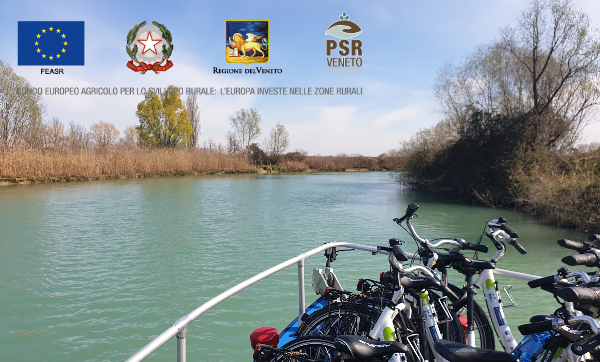
VIA-MER - Paesaggi della Venezia Orientale nel viaggio lungo l'antica rotta della mercanzia tra Venezia e Portogruaro
Researcher: Francesco Vallerani; Grant: Programma di sviluppo rurale per il Veneto 2014-2020; Managing Authority: Regione del Veneto – Direzione AdG FEASR Parchi e Foreste; Entity responsible for information: Department of Economics - Ca' Foscari University of Venice; Lenght: 31/08/2018 - 31/08/2019; Budget: € 19.721,94.
Abstract
With this project, through organized coordination activities, preparatory studies and territorial animation realized in synergy between different private subjects of the agricultural world and public entities, they intend to create the conditions suitable for the establishment of a cooperation group with agro-climatic purpose environmental (GCA) able to increase initiatives aimed at the enhancement of rural landscapes in their agricultural context, environmental tourism, historical, cultural, landscape, food and wine, products of the Food Park and new agricultural production of the territory and in the preservation of agricultural biodiversity and naturalistic of the geographical area involved in the intervention.
The project aims to increase the tourist receptivity of the geographical area where it develops allowing the primary sector to enhance the company's productions also following their first transformation carried out within the framework of the Small Local Productions referred to in the regional legislation. At the same time, an environment and a territory are presented as we see them, thus making the right recognition to the primary sector because of its constant and active presence.
EeDaPP - Energy efficiency Data Protocol and Portal
Researcher: Monica Billio; Grant: H2020 - Energy Efficiency; Lenght: 01/03/2018 - 29/02/2020; Budget: € 1.500.000,00 (Ca' Foscari: € 220.000,00); Website: www.eedapp.energyefficientmortgages.eu
Abstract
The EeDaPP Project intends to deliver large-scale, granular technical and financial data related to energy efficient mortgages by way of a standardised data protocol to be accessed through a common, centralised portal.
Three key outputs will be:
- the definition of specific reporting criteria for the gathering of data on energy efficient mortgages;
- the design and delivery of the standardised protocol for the gathering, processing and disclosing of such data, and the design of a centralised portal;
- the analysis of data gathered to further integrate ‘green value’ in property valuation and substantiate the correlation between energy efficiency and risk.
In this way, the EeDaPP Project builds on and complements the ongoing EeMAP Project, which is intended to design an energy efficient mortgage financing mechanism.

ENERGYA - Energy Use for Adaptation
Researcher: Enrica De Cian; Grant: ERC Starting Grant; Lenght: 01/02/2018 - 29/02/2023; Budget: € 1.495.000,00
Abstract
ENERGYA will improve our understanding of how energy and energy services can be used by households and industries to adapt to the risk posed by climate change. Specifically, the project will develop an interdisciplinary and scalable research framework integrating data and methods from economics with geography, climate science, and integrated assessment modelling to provide new knowledge concerning heterogeneity in energy use across countries, sectors, socioeconomic conditions and income groups, and assess the broad implications adaptation-driven energy use can have on the economy, the environment, and welfare.
The key novelty of ENERGYA is to link energy statistics and energy survey data with high spatial resolution data from climate science and remote sensing, including high-resolution spatial data on meteorology, population and economic activity distribution, electrification, and the built environment.
ENERGYA has three main objectives. First, it will produce novel statistical and econometric analyses for OECD and major emerging countries (Brazil, Mexico, India, and Indonesia) to shed light on the underlying mechanisms driving energy use. Second, it will infer future potential impacts from long-run climate and socioeconomic changes building on historical empirical evidence. Third, it will analyse the macro and distributional implications of adaptation-driven energy use with an economy-energy model characterising the distribution of energy use dynamics across and within countries.
Given the central role of energy as multiplier for socioeconomic development and as enabling condition for climate resilience, the research proposed in ENERGYA will result in timely insights for the transition towards sustainability described by the Sustainable Development Goals adopted by the United Nations as well as the Paris International Climate Agreement.

UNI 4 Justice
Researcher: Stefano Campostrini; Grant: National Project - Ministry of Justice; Lenght: 01/04/2022 - 30/09/2023; Budget: € 8.889.395,20 (Ca' Foscari: € 703.141,64).
Abstract
UNI 4 Justice is a complex project of collaboration between the scientific world and the justice system of the districts of the courts of appeal of Ancona, Bologna, Trento, Venice and Trieste, inspired by the principles of European planning, which promotes organisational, technological and professional change in judicial offices on the basis of objective and verifiable knowledge of work practices, methods of use of resources and monitoring tools. The project is highly innovative from various points of view in a matrix that intersects organizational, managerial, technological and more purely legal analysis components.

EPOC - Economic Policy in Complex Environments
Researcher: Paolo Pellizzari; Grant: MSCA - Innovative Training Networks; Lenght: 01/03/2021 - 28/02/2025; Budget: € 3.982.061,52 (Ca' Foscari: € 522.999,39).
Abstract
Many of the main current economic and societal challenges in Europe are characterised by complex dynamic patterns stemming from path dependency, irreversibility, systemic risk and (local) interaction of heterogeneous agents.
The Innovative Training Network EPOC aims at advancing the state-of-the-art and the applicability of computationally intensive methods for decision and policy analysis and at using these methods in the domains of climate change and innovation. This agenda will be pursued by combining an interdisciplinary research agenda with an innovative European joint doctoral training programme. Early Stage Researchers will gain expertise and skills in data science, network theory, agent-based simulation, and economic modelling, with focus on climate change
and innovation, and will apply these skills in their individual research projects. The academic training will be complemented by Transferable Skills Training Measures, Inter-Sectoral Training Measures, provided by non-academic partners, and Career Development Training. Interaction with stakeholders, policy makers and the general public will play an important role in pursuing the EPOC agenda and disseminating the results.
Hi-Di NET - Econometric Analysis of High Dimensional Network Structures in Macroeconomics and Finance
Researcher: Monica Billio; Grant: PRIN - MIUR; Lenght: 29/04/2020 - 29/10/2023; Budget: € 238.189,00; Website: www.unive.it/hidinet
Abstract
The project aims at developing novel multivariate econometric models and methods able to deal with network effects and to take into account time varying relationships. The purpose is to propose high dimensional models capable to deal with high dimension databases.
In the last two decades, network models become important tools in many fields (e.g. Physics, Biology, Information Theory, Machine Learning, Genetics, Biostatistics, Statistics). In social science, in both
economic theory and empirical economics, network is nowadays also an important tool of analysis. Despite of their potential, the problems related to inference and modelling with network structures are still largely unexplored. Moreover, network inference is coupled with high-dimensional models and large dataset. It is thus crucial that econometric theory answers these questions by developing methods and practices to provide satisfactory solutions to inference and modelling problems associated with large dataset, high-dimension time series and network analysis. This is the challenging aim of the project.
From an applied perspective, the main interest of the project is the application of the new high dimensional models including network structures to the central theme of financial and macroeconomic stability, which will be analysed from two main perspectives: macroeconomic and financial.

HiDEA - Advanced Econometrics for High-frequency Data
Researcher: Loriana Pelizzon; Grant: PRIN - MIUR; Lenght: 29/04/2020 - 29/10/2023; Budget: € 97.000,00.
Abstract
The research project HiDEA (Advanced Econometric methods for High-Frequency Data) aims at developing new theoretical ideas in the econometrics of high-frequency data, and to apply them to solve open economic and financial problems.
In particular, the main theoretical advancements of the project will be: developing the econometrics of stale prices, the econometrics of flash crashes, the econometrics of large cross-sections.
The main applications will be: measuring market liquidity from transaction prices, study policy implications for the prevention of mini flash crashes unrelated to market fundamentals, exploiting the informational content in the cross sections of high-frequency data for analyzing market behavior and for systemic risk monitoring, and understanding the behavior and role played by high-frequency traders in the price formation process.

EIBURS - ESG-Credit.eu - ESG Factors and Climate Change for Credit Analysis and Rating
Researcher: Monica Billio; Grant: European Investment Bank; Lenght: 01/12/2019 -31/01/2023; Budget: € 516.300,00.
Abstract
The aim of the ESG-Credit.eu project is to implement a methodology to include ESG criteria and climate change factors into credit analysis and ratings.
Given that ESG factors measure the firm’s sustainability and its ethical skills, the project investigates how those factors affect the creditworthiness of a firm measured by credit ratings over time. Moreover, we include in the analysis the impact that climate change could exert over a firm belonging to a certain industry.
The expected result of the ESG-Credit.eu project is to introduce augmented credit ratings which include ESG factors and climate change scenarios.

ION - Information Diffusion on Networks
Researcher: Nicole Tabasso; Grant: MSCA - Individual Fellowships; Lenght: 01/02/2019 - 31/01/2021; Budget: € 180.277,20.
Abstract
This two-year research project aims to analyse the simultaneous diffusion of multiple pieces of information on (social) networks; how messages may interact, how rumours diffuse in the presence of truthful information and verification, and how network structure interacts with the virality of information.
Misinformation can have severe consequences, such as the debunked myth of a link between vaccinations and autism or AIDS denialism. Political examples also abound. The rise in communication through online networks is often quoted as contributing to an increased spread of rumours and misinformation. Yet, in truth the state of the art has little to say about how alternative pieces of information interact on networks, and even less why rumours might be propagated without prior verification. This project aims to build rigorous economic models which can shed light on the processes and decisions involved, thus addressing the tangible threat that the spread of misinformation poses to society. I am an experienced researcher and have worked for various years in the area of information diffusion on networks, providing me with excellent insights and methodological tools to work on this project under the supervision of Professor Sergio Currarini, a leading expert in network theory.
My stay at Ca’ Foscari University of Venice will allow me to establish new (international) collaborations and additional training, particularly regarding interdisciplinary tools to bring to the economic study of (mis)information diffusion. Together the training, network, and publications inherent in the development of this project will have an extremely positive impact on my career, including increased possibilities to apply for future funding calls by the EU. By forming the basis of a long-run research agenda focusing on online information diffusion the project will contribute to the EU's Digital Market Strategy and to its international reputation as a world leading research destination.
SSHOC - Social Sciences & Humanities Open Cloud
Researcher: Agar Brugiavini; Grant: H2020; Lenght: 01/02/2019 - 30/06/2023; Budget: € 212.850,00; Website: www.share-project.org
Abstract
The project aims to provide a full-fledged Social Sciences and Humanities Open Cloud (SSHOC) where data, tools, and training are available and accessible for users of SSH data.
The focus of the project is determined by the goal to further the innovation of infrastructural support for digital scholarship, to stimulate multidisciplinary collaboration across the various subfields of SSH and beyond, and to increase the potential for societal impact.
The intention is to create a European open cloud ecosystem for social sciences and humanities, consisting of an infrastructural and human component. Development, realisation and maintenance of user-friendly tools & services, covering all aspects of the full research data cycle will be built, taking into account human-centric approach and creating links between people, data, services and training.
SSHOC will encourage secure environments for sharing and using sensitive and confidential data. Where relevant, the results of EOSC-hub H2020 project will be adopted. The SSHOC will contribute to the Open Science agenda and realising the EOSC. This project aligns with prescribed cluster activities in order to realise a SSH cloud that can fully encompass infrastructural support for the study of social and cultural phenomena. Moreover, the planned SSH Cloud is instrumental to Europe's multilingualism; data in Europe is often available in multiple languages thus making a strong incentive for comparative research of the societal and cultural phenomena that are reflected in language use. The SSH Cloud shall contribute to innovations stemming from the coupling of these heterogeneous data types - and work on the Interoperability principle of FAIR. rather slowly in certain parts of the EU, for a host of structural reasons detailed below. This threatens the stability of SHARE, has stalled the inclusion of all EU member states, and is threatening its world-class standards.
The project aims to enlarge SHARE-ERIC membership, enhance the technical architecture, introduce several scientific innovations, and support the central coordination which is crucial for the international cooperation and cross-national comparability.

EUTERPE - EUropean TERm Premium Estimation of the term premium in Euro Area government bonds
Researcher : Andrea Berardi; Grant: MSCA - Individual Fellowship; Lenght: 01/04/2018 - 31/03/2020; Budget: € 180.277,20
Read the news: Bringing to light the unobservable term premium of Euro Area government bonds [CORDIS - EU research results]
Abstract
The purpose of the EUTERPE (EUropean TERm Premium Estimation) project is to implement an innovative system producing timely and reliable estimates of the term premium and its components for government bonds of the Euro Area (EA).
The project aims to fill an important gap in the existing literature by proposing an integrated procedure which relies on a novel multi-country term structure model with interrelation between yield curves, macro variables, volatility,and global factors.
EUTERPE intends to equip the European policymakers with a new analytical tool for their monetary policy decisions and has potentially various applications in the financial industry, thereby representing a way to use knowledge in Europe effectively for business and policy purposes.

ExSIDE - Expectations and Social Influence Dynamics in Economics
Researcher: Paolo Pellizzari; Grant: MSCA - Innovative Training Networks; Lenght: 01/03/2016 - 28/02/2021; Budget: € 3.900.000 (Ca' Foscari: € 516.122,64); Website: www.exside-itn.eu
Abstract
Expectations play a crucial role in determining the behaviour of many economic decision makers. The recent financial and economic crisis has highlighted the importance of expectation dynamics for economic development, the success of firm strategies and public policies.
The Innovative Training Network ExSIDE aims at improving our understanding of the role of expectation formation and social influence for economic dynamics and for the optimal design of economic policy. This agenda will be pursued by combining an interdisciplinary research agenda with an innovative European joint doctoral training programme, which provides Early Stage Researchers with a broad range of expertise and skills needed for a thorough analysis of expectation formation processes and their role in Economics. Both the research projects and the training activities will combine work in Behavioural Economics, Psychoanalysis, Opinion Formation, Network Theory, Agentbased Simulation and Economic Modelling in different areas. The academic training will be complemented by extensive Transferable Skills Training Measures, Inter-Sectoral Training Measures, provided by non-academic partners, and Career Development Training. Interaction with stakeholders, policy makers and the general public will play an important role in pursuing the ExSIDE agenda and disseminating the results. The ExSIDE consortium consists of eight leading European universities and nine non-academic partners. Each Early Stage Researcher will be hosted by two universities, has a secondment with a non-academic partner and will graduate with a joint or double degree.
The research and training in ExSIDE will ensure world-wide employability of the ExSIDE graduates inside and outside academia and will also boost the ability of European institutions and companies to develop efficient policies and strategies. ExSIDE will reinforce the establishment and long term sustainability of structured European joint doctoral programmes in Economics.

SHARE-COVID19 - Non-intended health, economic and social effects of the COVID-19 epidemic control decisions: Lessons from SHARE
Researcher: Agar Brugiavini; Grant: H2020; Lenght: 01/11/2020 - 30/10/2023; Budget: € 6.847.680,25 (Ca' Foscari € 313.542,00).
Abstract
The non-intended consequences of the epidemic control decisions to contain the COVID-19 pandemic are huge and affect the well-being of European citizens in terms of economics, social relationships and health: Europe is experiencing the largest recession since WWII; social contacts have been interrupted; people avoid seeking medical treatment in fear of infection.
The overarching objective of this project is to understand these non-intended consequences and to devise improved health, economic and social policies. In SHARE's policy recommendation, efforts are made to make healthcare systems and societies in the EU more resilient to pandemics in terms of prevention, protection and treatment of the population 50+, a most vulnerable part of the population. The project aims to identify healthcare inequalities before, during and after the pandemic; to understand the lockdown effects on health and health behaviours; to analyse labour market implications of the lockdown; to assess the impacts of pandemic and lockdown on income and wealth inequality; to mitigate the effects of epidemic control decisions on social relationships; to optimise future epidemic control measures by taking the geographical patterns of the disease and their relationship with social patterns into account; and to better manage housing and living arrangements choices between independence, coresidence or institutionalisation.
The project pursues a transdisciplinary and internationally comparative approach by exploiting the data sources of the SHARE research infrastructure.The project’s policy recommendation are targeted at policy makers in the Commission and in national ministries as well as at national and international NGOs and social organisations.

SmartCulTour - Smart Cultural Tourism as a Driver of Sustainable Development of European Regions
Researcher: Nicola Camatti; Grant: H2020; Lenght: 01/01/2020 - 30/06/2023; Budget: € 290.000,25
Abstract
This project will explicitly address the issue of having cultural tourism contribute to the sustainable development of cities and regions, by means of innovative theoretical and applied research, which builds on a number of past projects that were designed with assistance of JPI Urban Europe, the EC, the Council of Europe and UNESCO.
The project will identify signals, conditions and possibilities that interfered with the sustainable development of tourism in established destinations. A clear analysis of data on tourism over time in these destinations can provide clear insights into key turning points and potential criteria that have influenced this.
An analysis of the initial development of cultural tourism, with an emphasis on inclusiveness and local stakeholder participation, will contribute further to this and lead to rich insights on future ways of governing cultural tourism.

SHARE COHESION - Survey of Health, Ageing and Retirement in Europe
Researcher: Agar Brugiavini; Grant: H2020; Lenght: 01/10/2019 - 30/09/2023; Budget: € 4.963.433,00 (Ca' Foscari € 602.723,00).
Abstract
SHARE is a research infrastructure to better understand and cope with the challenges and chances of population ageing. The main objective of SHARE itself is to provide excellent data for aging research through a combination of (a) transdisciplinarity, (b) longitudinality and (c) European coverage with strict cross-national comparability through ex-ante harmonization.
This threefold concept has become a huge success as measured by the number of scientific publications and its support for evidence-based policy at the EU and national levels. The data has world-class value as proven by recent evaluations and the many users, even outside of the EU. The key objective of this project is to strengthen the centralized approach of SHARE with the aim to combine excellence with cohesion during the process of innovating the scientific content and the survey methods.
Specifically, the project will support the supra-national innovation and develop-ment tasks to be executed by the Area Coordinators (scientific content) and the International Coor-dinator (survey methods) during Waves 8-10 of SHARE, thereby improving the scientific state-of-the-art of SHARE and cross-national cohesion across all 28 SHARE member countries.
SELECT - Unfolding the SEcrets of LongEvity: Current Trends and future prospects
Researcher: Stefano Campostrini; Grant: PRIN - MIUR; Lenght: 19/08/2019 - 19/02/2023; Budget: € 219.227,00; Website: selectprin.github.io
Abstract
The rapid social, economic, and technological transformations characterizing our society in the recent years are producing several effects on many complex and dynamic processes of human health. The project will focus, in particular, on the recent upward trend in longevity, and on its relation with current and future morbidity and disability patterns.
The joint analysis of such processes, which plays a key role in many public health systems, requires novel qualitative and quantitative paradigms. In fact, unfolding the secrets of longevity, learning the dynamic interrelations between morbidity, disability and mortality, identifying future trends, and devising effective interventions can only proceed under a collective effort by Demographers, Epidemiologists, Social and Data Scientists.
The mission of SELECT is to explore the factors and mechanisms of longevity evolution in the recent years and link them with morbidity trends to foster healthy longevity. It will address this goal through a multidisciplinary team of Demographers, Epidemiologists, Social and Data Scientists, who will take advantage from the availability of several datasets to merge public health and epidemiological theories with a data-driven approach based on innovative models.

The economics of old age risks
Researcher: Agar Brugiavini; Grant: PRIN - MIUR; Lenght: 05/02/2017 - 05/02/2020; Budget: € 91.500,00.
Abstract
This project focuses on the economic effects of risks faced by older individuals and their interactions.
The project investigates four different types of risk and their impact on the economic behavior of individuals and households, including the implications for the design of welfare systems in aging societies: Health risk, Longevity risk,Labor market risk, Financial risk. The network proposes an integrated and interdisciplinary approach to these topics. First, all the aforementioned risks interact in the decisions of elderly individuals. Second, in each risk dimension, it is key to study the consequences of wrong decisions, due to either lack of cognitive abilities and financial sophistication, or to biased financial advice.
The project proposes advances at both theoretical and empirical level. Although the different lines of research will make use of several microeconomic data sets, the most heavily exploited data source will be the Survey of Health Ageing and Retirement in Europe (SHARE). The panel structure of SHARE allows the estimation of dynamic decision models controllingfor unobserved heterogeneity, while the multi-country nature of the data permits to relate individual behavior to the institutional characteristics of each country.
HEPNESS - Healthy Environment Promotion and Ecosystem Services Support for Active Cities Development
Researcher: Jan van der Borg; Grant: Erasmus+ Sport; Lenght: 01/01/2017 - 31/12/2018; Budget: € 70.786,00; Website: www.hepness.eu
Abstract
HEPNESS establishes a transnational cooperation where cities, research and sport organizations advance new synergies to develop health and sport cities, enhancing cultural and natural assets and ecosystems services for the promotion of an active lifestyle. Integrating physical activity into daily lives is a creative process, where cities can enhance resources, before building new infrastructures. It is a process that requires the contribution of numerous cities departments and public private partnership amid cities, sport associations, tourism organizations, healthy and educational settings.
By providing methodological and practical tools, and by reinforcing the capacity of decision makers to define people centred policies and develop interventions for physical activities promotion that draw on the contribution of numerous sectors, HEPNESS generates new leadership for the promotion of health sport cities.
The HEPNESS Perspective and the Framework of practices are developed with the purpose of inspiring numerous cities to implement health-sport programs, and enhance recreational ecosystem services for active lifestyle.

SERISS - Synergies for Europe's Research Infrastructures in the Social Sciences
Researcher: Agar Brugiavini; Grant: H2020; Lenght: 01/07/2015 - 30/06/2019; Budget: € 8.494.397,00 (Ca' Foscari: € 139.125,00).
Abstract
Europe is facing huge socio-economic challenges: an economic crisis with a young generation in search of jobs, population ageing potentially straining inclusion and innovation of our societies, climate change with its pressures to redesign energy, transport and housing patterns, just to name some of the most urgent “Grand Challenges”.
SERISS brings together three research infrastructures in the social sciences: the European Social Survey (ESS), the Survey for Health Ageing and Retirement in Europe and the Consortium of European Social Science Data Archives (CESSDA). Also involved in SERISS are non-ESFRI research infrastructures: GGP - Generations and Gender Programme; EVS - European Values Survey and the WageIndicator Survey. The overarching objective of this project is to support the Union, the Commission and the Member States to tackle these challenges with a solid base of socio-economic evidence.
The scientific objective of this project is to exploit the synergies among these three infrastructures to their fullest extent and to leverage these synergies to influence the still rather fragmented landscape of smaller infrastructures.
Specific objectives are:
- to better represent the European population, including target groups of policy measures addressing the Grand Challenges (e.g., young unemployed, older persons in institutions and migrants),
- to strengthen cross-national harmonization across Europe by leveraging recent advances in questionnaire design, translation and coding techniques,
- to exploit the advances in software technology for cost-effective web-based interviewing, more efficient fieldwork management, and to support new ways of collecting data
- to better connect the world of research-driven social surveys with the world of process-generated administrative data,
- to ensure that the ethical and data protection concerns of the respondents are properly be taken into account by creating a consistent and EU-wide framework for all social surveys
SHARE DEV3 - Achieving world-class standards in all SHARE countries
Researcher: Agar Brugiavini; Grant: H2020; Lenght: 01/07/2015 - 30/06/2018; Budget: € 5.493.328,75 (Ca' Foscari: € 521.113,75); Website: www.share-project.org
Abstract
The central objective of this project is to improve European coverage, stability and cross-national comparability of SHARE, the Survey of Health, Ageing and Retirement in Europe, while a sustainable funding model will be negotiated with the member states, DG RTD, DG JRC and several policy-related DGs to fully implement SHAREERIC in all SHARE countries.
SHARE is a research infrastructure to better understand and cope with population ageing created after a joint communication by the European Council and the European Parliament to the European Commission. It has been a huge success measured by the number of users, the number of scientific publications and its public policy support. The data has world-class value as proven by the many users also outside of the EU, especially in the US. The key value of SHARE lies in its strict cross-national comparability which permits unbiased cross-national comparisons of the economic, health and social situation of European citizens aged 50 and over.
To obtain this key value, SHARE aims to include all European countries, especially all EU member states. SHARE has made great progress during the first waves and has collected data in 21 countries. Moreover, substantial international coordination has to be done among these countries. To this end, SHARE has implemented an efficient and effective central management model.
In contrast to this scientific and managerial success, the decentralized and member state-related funding is succeeding rather slowly in certain parts of the EU, for a host of structural reasons detailed below. This threatens the stability of SHARE, has stalled the inclusion of all EU member states, and is threatening its world-class standards.
The project aims to enlarge SHARE-ERIC membership, enhance the technical architecture, introduce several scientific innovations, and support the central coordination which is crucial for the international cooperation and cross-national comparability.
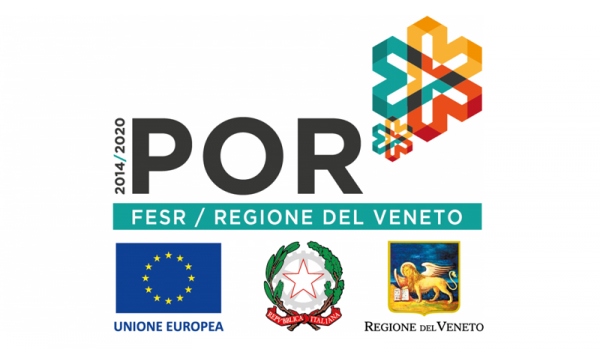
SAFE: Smart creAtivity for saFety and rEstart
Researcher: Mario Volpe; Grant: Regione del Veneto – POR FESR 2014-2020; Lenght: 10/09/2020 - 31/12/2022; Budget: € 2.979.158,75 € (Department of Economics Ca' Foscari: € 25.000€).
Abstract
The SAFE project plans to carry out a series of innovative and coordinated Industrial Research and Experimental Development activities, aimed at transforming company systems and making them capable of intercepting and affirming new consumption models and new needs: security, digital transformation, product integration - service, sustainability, well-being.

VENETO PROSPECT - PROSPETTIVE DI SOSTENIBILITA’ NELLE POLITICHE REGIONALI
Researcher: Mario Volpe; Grant: National project - Environment Ministry; Lenght: 07/09/2020 - 06/12/2022; Budget: € 100.000 (Ca' Foscari: € 100.000).
Abstract
The aim of Veneto PROSPECT is "To build a shared framework of knowledge and skills to support the process of integrating sectoral policies towards complementary perspectives of sustainability, with the ultimate aim of strengthening the process of implementing the regional strategy for sustainable development" ( SRSvS). To support the implementation of the SRSvS, PROSPECT uses open innovation to construct in a shared way an adequate interpretative model of sustainability and a system of indicators for mapping sustainability in the entire scope of regional policies. The project creates a pro-active dialogue between scientific knowledge and planning practice on the theme of sustainability, through work tables and laboratories shared between the University, the Region and the stakeholders.

Tracciabilità, Certificazione ed Anticontraffazione dei prodotti Moda Made in Italy
Researcher: Mario Volpe; Grant: POR FESR 2014-2020; Lenght: 07/11/2017 - 07/05/2020; Budget: € 790.083,20 (Ca' Foscari: € 94.093,92).
Abstract
The project aims to deepen and develop issues related to the recognizability, traceability and authenticity of Made in Italy, as well as marketing and the definition of innovative models.

MAKERS - Smart Manufacturing for EU Growth and Prosperity
Researcher: Mario Volpe; Grant: MSCA RISE - H2020; Lenght: 01/01/2016 - 31/12/2019; Budget: € 1.057.500,00 (Ca' Foscari: € 126.000,00).
Abstract
MAKERS will bring together leaders from business, academia and policy to study issues related to the drivers and dynamics of sustaining the competitiveness of EU manufacturing sectors. The project’s innovative research, training and mobility activities will address key concerns related to the historic opportunity for the EU to lead a manufacturing renaissance that not only upgrades existing manufacturing competences but, more importantly, develops new technological capabilities across EU regions to support regional industrial resilience for more distributed and sustainable socio-economic growth and prosperity.
MAKERS will create a multi-stakeholder platform to discuss the current understanding of issues related to manufacturing renaissance, including (1) the role of small, medium and large manufacturing firms and local production systems plugged into local-global value chains; (2) what are the drivers and processes for innovation, technological capabilities and technology transfer from research intuitions to firms; (3) trends in reshoring and nearshoring and the potentials for reindustrialisation and shorter value chains; (4) the impact of the socio-economic-environmental sustainability agenda on EU competitiveness; (5) skills requirements and training; and finally (6) how policy can ensure the competitiveness of EU manufacturing sectors for more distributed and sustainable socio-economic growth and prosperity.
MAKERS’ training programme comprises:
- annual summer schools that will cover the breadth of the issues above and address methodological requirements;
- work package-specific Business/Academia/Policy (BAP) workshops;
- dissemination activities within the network in conjunction with mobility, such as presentations at faculty seminar series, and doctoral level guest lectures;
- dissemination activities at events outside the network, such as presentations at international conferences, policy fora and multi-media engagement.
Last update: 17/04/2024

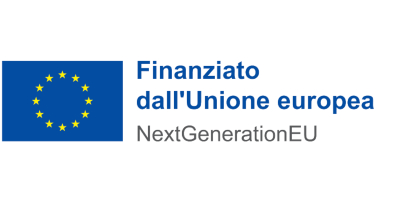
![Ministero dell'Università e della Ricerca [ITA] Ministero dell'Università e della Ricerca [ITA]](/pag/fileadmin/user_upload/dipartimenti/economia/img/400x200/mur_400200.jpg)
